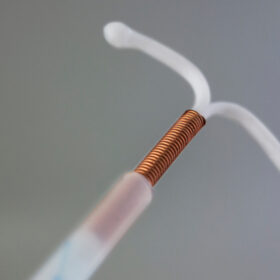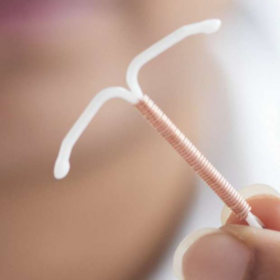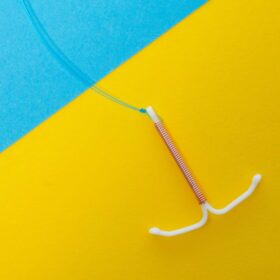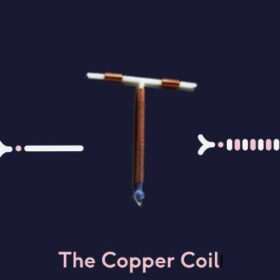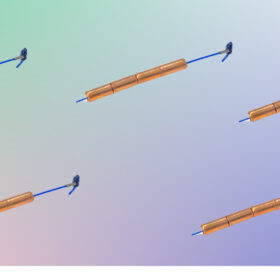
How the morning after pill works
In this article
What's the lowdown?
The morning after pill may not work if you have already ovulated
The copper IUD is the most effective form of emergency contraception, and works up to 5 days after ovulation
If you have a higher BMI, you may need to take two doses of the morning after pill
The morning after pill does not affect fertility, and there is no limit to the amount of times it can be taken
You can buy the morning after pill directly from The Lowdown
What is the morning after pill, and how does it work? Here’s the lowdown on what you really need to know about the morning after pill and emergency contraception, including when it will and won’t work to prevent pregnancy.
What is emergency contraception?
There are 2 types of emergency contraception:
- The copper coil
- Morning after pills. There are 2 types of morning after pill, containing the active ingredients either levonorgestrel or ulipristal acetate.
The copper coil is THE most effective form of emergency contraceptive and should be offered to everyone who needs it. However, people also choose the morning after pill. This guide concentrates on the morning after pill, but we have loads more information on the copper coil elsewhere.
When to take the morning after pill
The morning after pill can be used to prevent pregnancy in the hours or days after unprotected sex. Unprotected sex is any sex during which contraception is not used, or not used correctly, or during which contraception has failed. This could be a broken condom or forgotten pills – if your contraception has not worked or been taken as it is supposed to, the morning after pill may help to prevent a potential unintended pregnancy. The length of time you have to take the morning after pill after unprotected sex will depend on the type of pill you take. We’ll go into more detail on that in a moment, but firstly…
How does the morning after pill work?
The menstrual cycle
In order to understand how the morning after pill works, we first have to know what happens during the menstrual cycle. Our menstrual cycle 101 blog gets into the details of all the phases of your cycle, but for the purposes of understanding the morning after pill we’ll just briefly go over just the follicular phase here.
The first day of your period signals the beginning of the first phase of your cycle: the follicular phase. During the follicular phase, when oestrogen and progesterone levels are low, follicular stimulating hormone (FSH) rises, causing the most advanced follicle (a sack of fluid inside your ovary that contains an egg) to mature. When the follicle is big enough it produces large amounts of oestrogen which triggers another hormone (stay with us) called luteinising hormone (LH), which tells the follicle to release the egg. Voilà – ovulation!
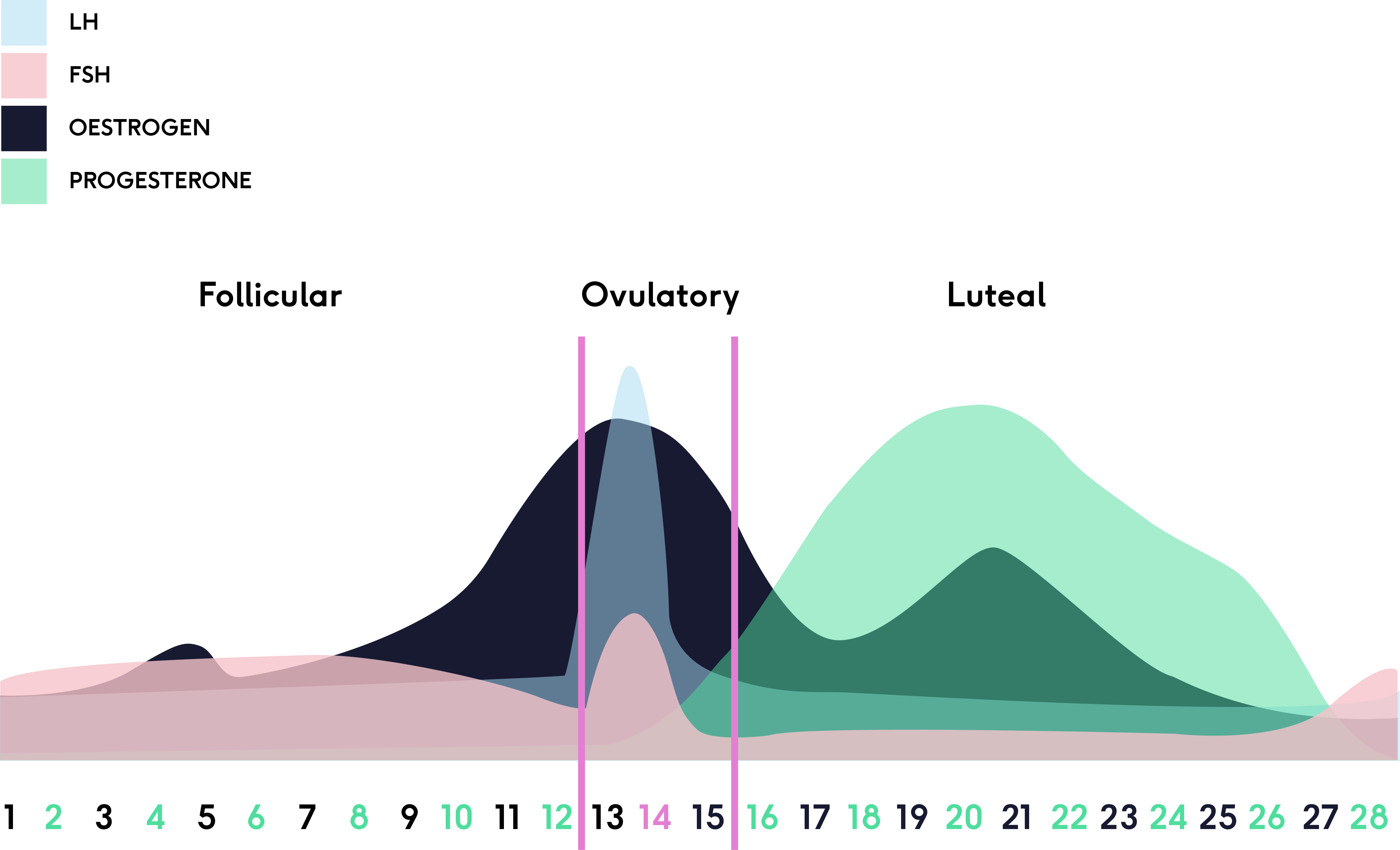
Can the morning after pill affect your cycle?
There are lots of brands of morning after pill on the market at the moment including LoviOne, Levonorgestrel, Ezinelle, Levonelle One Step, and ellaOne. All of these pills contain a synthetic hormone called levonorgestrel, except ellaOne, which contains a hormone modulator called ulipristal acetate.
Sperm can stay alive in the female genital tract for about 5 days after sex. If ovulation occurs within those 5 days, or even just before, fertilisation could take place and you are at risk of pregnancy.
Strangely enough, scientists still can’t agree on exactly how levonorgestrel works. We do know, however, that it delays the release of an egg (ovulation), meaning that any sperm present in the body will most likely die before an egg appears and they have the chance to fertilise it.
The function of ulipristal acetate, on the other hand, is clearer: it stops the normal functioning of progesterone and prevents the surge of LH (the one that tells the follicle to release its egg), and so delays ovulation. Similarly to levonorgestrel, an egg is released later on, giving the sperm time to say their goodbyes before the egg arrives!
It is important to mention that the morning after pill isn’t an abortion pill. This is because without ovulation, pregnancy cannot occur. Some research exploring the precise mechanisms of emergency contraceptive pills suggests that the pills could have an effect on an egg that is already fertilised. However, a judicial review in 2002 concluded that pregnancy begins at implantation (where a fertilised egg embeds itself into the womb lining). All forms of emergency contraception therefore work before implantation occurs rather than disrupting established implantation.
Which morning after pill should I choose?
The choice between the morning after pills is dependent on several factors:
- When the unprotected sex was – levonorgestrel works for up to 96 hours after, ellaOne for up to 5 days afterwards
- If you have unprotected sex within 5 days before ovulation, you’re advised to choose ellaOne rather than levonorgestrel
- ellaOne is slightly more effective than levonorgestrel
- If you weigh over 70kg or have a BMI over 26, you should have ellaOne or a double dose of levonorgestrel
- You can’t have ellaOne if you have severe asthma that has needed steroid tablets
- If you are breastfeeding, you can’t breastfeed and will need to “pump and dump” you milk for 7 days after taking ellaOne
- ellaOne is more expensive than levonorgestrel if you are buying the morning after pill yourself
- If you use progestogen-only contraception (eg the mini pill), this can reduce the effectiveness of ellaOne
If you’re confused, a healthcare professional can help.
When might the morning after pill not work?
Does the morning after pill work during ovulation
This is really, really important, and is something that very few people know about. Earlier, we explained that the morning after pill interferes with the menstrual cycle and causes an egg to release later than it normally would. If that egg is already released when you have sex, however, the hormones in the morning after pill will not be able to do anything about it. Essentially, if you’re past the ovulation stage of your cycle or fertilisation has occurred, the morning after pill will not work and you may become pregnant. This is why it’s so important to do a pregnancy test 3 weeks after taking a morning after pill. Buy 2 Clearblue tests from Amazon (affiliate link)
If you remember, though, there’s a debate in the scientific community about the effects of the morning after pill following ovulation. So you may want to take the morning after pill, even if you think you may have already ovulated. Although the general consensus still seems to be that its primary function is to delay the release of an egg.
If you have a higher BMI:
Research has found¹ that the levonorgestrel morning after pill is less likely to work in women with a BMI of 26 or above, or if you weigh over 70kg (even with a normal BMI). Similarly ellaOne may be less likely to work if you have a BMI above 30 or weigh more than 85kg. Doubling the dose of the levonorgestrel pill has been suggested to increase the effectiveness, but another study suggests this makes no difference². The guidelines for emergency contraception³ in the UK recommend women with a BMI of 26 or above or who weigh over 70kg (and a copper coil is not suitable) should be offered ellaOne, or a double dose of the levonorgestrel morning after pill. This is something you can discuss with your doctor or pharmacist.
How long after sex should I take the morning after pill?
Levonorgestrel, Ezinelle and Levonelle One Step must be taken within 72 hours (three days) of unprotected sex. ellaOne can be taken up to 120 hours (five days) after unprotected sex.
Sex is classed as unprotected not only if no contraception is used, but also if the contraception you are using has failed (such as a broken condom or missed pills).
How long does the morning after pill take to work?
The morning after pill should work almost immediately to delay ovulation. It is important you don’t use the morning after pill as a preventative measure – i.e. don’t think you’re safe to have unprotected sex after you’ve taken it. Sperm can survive inside your body for a few days, so having unprotected sex again after you’ve taken it could lead to pregnancy. You will need to consider emergency contraception again for any further instances of unprotected sex within the same menstrual cycle.
How effective is the morning after pill?
The earlier you take the morning after pill, the lower your chances of becoming pregnant. Remember that current advice states that the pill must be taken before ovulation in order to be effective, so the later you take it the more risk you have of ovulating and the more likely it is the pill won’t work.
Researchers looked at all the evidence⁴ surrounding the morning after pill and found that ellaOne was more effective at preventing pregnancy than levonorgestrel containing pills. They found that 1-2% of people will become pregnant after using ellaOne, compared to 0.6-2.6% of those who take another morning after pill.
However, if you’re REALLY keen to not get pregnant, less than 0.1% of people get pregnant after having the copper coil fitted as emergency contraception.
As we said earlier, the effectiveness of the morning after pill might be reduced if you have a high BMI. This is something to consider when discussing your options with your healthcare provider
If you vomit within two hours of taking a levonorgestrel containing pill, or within three hours of taking ellaOne, you will need to take another dose or have a copper coil (IUD) fitted to prevent pregnancy.
Should I take 2 morning after pills?
You should not take 2 ellaOne pills. You may be advised to take 2 levonorgestrel morning after pills if you weigh over 70kg or have a BMI of over 26, or you take specific prescription medication which affects the metabolism of the morning after pill. Please speak to your healthcare professional if you are taking prescription medication.
What should I expect when taking the morning after pill?
Morning after pill side effects
Most individuals experience no side effects when taking the morning after pill, and there are no serious or long-term side effects associated with it at all. However, the NHS states that you might experience:
- Headaches
- Tummy ache
- Changes to your next period – we discuss this more below
- Feeling nauseous or vomiting – remember that if you vomit within two hours of taking levonorgestrel or within three hours of taking ellaOne, you’ll need to make another visit to your healthcare provider to get a second dose of the morning after pill or consider the emergency IUD.
- If you have diarrhoea after taking the morning after pill, guidelines do not say you need to take another one.
Your period may be earlier, later, lighter, heavier or more painful than usual after taking the morning after pill. This is because, when taken at the correct time, the morning after pill delays ovulation and, as a result, alters the timings of our natural cycle. This is temporary, and should only affect your next period before things return to normal. For more insight, check out our user-rated morning after pill side effects, and reviews of the morning after pill.
Interacting medicines
There is a large (and rather overwhelming) list⁵ of medicines that can interact with the morning after pill.
The NHS page for emergency contraception⁶ states that it should not be taken if you have severe asthma, take St John’s Wort, take some medicines for epilepsy, HIV or tuberculosis, take medicines for stomach acid, or are taking certain types of antibiotics. These medicines won’t make it dangerous for you to take the morning after pill, they just might make it less effective, and your dose may need to be increased.
If you’ve used combined hormonal contraception (i.e. the combined pill, patch or ring) or the progestogen-only pill in the 7 days prior to using emergency contraception, the effectiveness of ulipristal acetate in ellaOne could theoretically be reduced so healthcare professionals would advise you to consider the copper IUD or a morning after pill containing levonorgestrel. If you require emergency contraception because your injection, implant or coil has run out and needs replacing, check this with your doctor.
A recent study from 202310, found that combined the morning after pill with a painkiller called piroxicam is more effective than taking the morning after pill alone. Piroxicam is an anti-inflammatory which inhibits prostaglandin production (which supports ovulation and fertilisation). Piroxicam isn’t being prescribed alongside the morning after pill yet, as more research is still needed. But, this is a cool new development though and we will keep an eye on the progress.
If you are at all unsure, talk to your healthcare provider about the medications that you are taking before choosing the morning after pill.
How do you know if the morning after pill worked?
When to take a pregnancy test after taking the morning after pill
As the pill can affect your period, or cause spotting or bleeding, it is recommended that you take a pregnancy test three weeks after taking the morning after pill and don’t rely on your period as a sign you’re not pregnant. Remember that the pill itself can make your period late, so try not to worry if it doesn’t arrive on time.
What should I do if the morning after pill doesn’t work?
If you do find yourself pregnant after taking the morning after pill, it can be unexpected and overwhelming. Consider speaking to someone you trust, and remember that this isn’t something you have to face alone. There are brilliant organisations and resources available to help you through and we have a thorough guide on how to manage unplanned pregnancy. The British Pregnancy Advisory Service (BPAS) offers counselling if you need someone to talk to, and will go through your options with you to ensure you’re making the best choice for you.
If you’d rather speak to your doctor, they can also discuss the options available to you, and can refer you on to services that might be helpful, whatever you decide.
Can the morning after pill make you infertile?
The morning after pill does not affect fertility, and there is no limit to the amount of times it can be taken. It contains exactly the same type of hormone that’s in the most common contraceptive pills like Microgynon and Rigevidon, which have been used by millions of people for several decades. There is no evidence that this hormone or the morning after pill will have any impact on your fertility or ability to get pregnant after using them.
How many times can you take the morning after pill in your life?
Doctors and healthcare providers recommend that you don’t take the morning after pill too often as it’s not as reliable as ongoing contraception, which has caused rumours about its safety. In reality, the morning after pill has no long-term effects on your body, so can be used as many times as you need, and can also be used more than once in the same menstrual cycle.
The reason you might be advised to refrain from taking it too often is because there are other contraceptive choices available to you that are far more effective and easier to manage.
If your current method isn’t working for you (broken condoms or forgotten pills for example), try our contraception recommender to find something that might be more suitable for you. Or even better, book in with one of The Lowdown’s women’s health GPs! Although we don’t offer emergency appointments, our medics can give you individualised advice on ongoing contraception.
How much does the morning after pill cost?
You can get the morning after pill for free from most healthcare providers, such as sexual health clinics and your GP. If you go to a pharmacy, you might have to pay around £25 for levonorgestrel or £35 for ellaOne. You can order the morning after pill cheaper online from us at The Lowdown.
Remember, there may be a delay in postage and delivery so make sure this won’t push you beyond the 72 or 120 hour window after unprotected sex in which you have to take levonorgestrel or ellaOne. And be mindful that the earlier you take it after sex the more effective it is likely to be.
You have to be over 18 to order with us at The Lowdown. If you are under 16, you will need a prescription from your doctor to buy levonorgestrel, but over-16s can buy it from a pharmacy without a prescription. Anyone can buy ellaOne without a prescription. The NHS provides more information about the services that offer free and paid access to the morning after pill.
When can I start using the contraceptive pill after taking the morning after pill?
If you begin taking a contraceptive pill within the first five days of your period, you are immediately protected against pregnancy. Beginning your contraception on any other day of your menstrual cycle is called ‘quick starting’. If you decide to ‘quick start’ a standard combined contraceptive pill, you will need to use another form of contraception for the first seven days. All methods of contraception can be ‘quick started’ at any time if you’re not at risk of pregnancy, but there are rules about how long you’ll need extra cover for.
If you have recently had unprotected sex, you should consider emergency contraception if you want to avoid an unintended pregnancy. There may be a risk of a very early pregnancy but quick starting your contraception at this point is an option if a pregnancy test is negative. In this case you will be advised to do a pregnancy test three weeks after the last episode of unprotected sex. The available evidence shows there is no harmful effect of hormones from contraception on an early pregnancy.
If you have used the emergency contraceptive pill ellaOne (containing ulipristal acetate) wait 5 days before quick starting your pill (or other suitable hormonal contraception) and use condoms or avoid sex in the meantime and until your contraception method is effective (for a further 7 days if quick starting the combined pill for example).
There are also many great options, other than the pill for ongoing contraception – take a look at our comparison tool and reviews on The Lowdown!
The copper coil (IUD) as emergency contraception
Many of us aren’t aware that the MOST effective form of emergency contraception is actually the copper coil (IUD). This can be fitted up to five days after unprotected sex, and only 0.1% of people who choose this method become pregnant. An added benefit of the coil is that once it is in place, it can be left for up to ten years (depending on the brand of coil), providing an emergency solution alongside long-term contraception. Win-win!
The copper coil works as emergency contraception as it is toxic to sperm, preventing them from moving towards an egg. If an egg has already been fertilised, it prevents this egg from implanting into the womb lining by creating an inflammatory reaction. This means that even though fertilisation has happened, a pregnancy cannot grow.
The great thing about the copper coil is that if you have a regular cycle, it can be fitted up to 5 days after you have ovulated. That means that you could have had multiple episodes of unprotected sex in your cycle and still get the emergency coil fitted.
If there is concern about a sexually transmitted infection (STI) the clinic will offer you antibiotics at time of fitting as well as screening tests.
Access to an IUD as emergency contraception at your GP might be limited, but all sexual health clinics should be able to offer it to you.
In summary…
Deciding on which contraception to use is enough of a minefield without throwing an emergency into the mix. If you’re clued up about your cycle and know when you ovulate, you might be able to tell whether the morning after pill is right for you when the moment arises. If you’re not, or you think you might be later on in your cycle – or if you just want a more effective, emergency AND long-lasting method of contraception – the copper coil is the most effective.
The most important thing to remember, though, is that accidents happen to everyone. When things go wrong, you’re never alone, and there are always options available to you. If you’re not sure what to do, consider talking through your options with a pharmacist or your doctor or nurse. You can also book a consultation with one of our in-house GPs to discuss your ongoing options with a contraception expert.
Our medical review process
This article has been medically reviewed for factual and up to date information by a Lowdown doctor.



